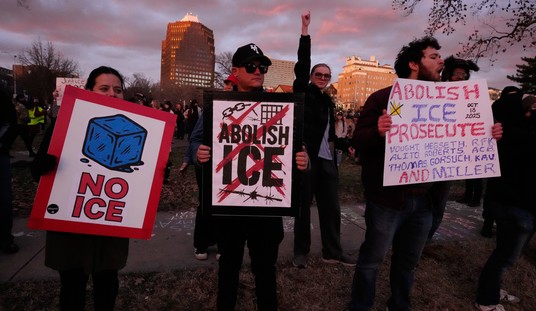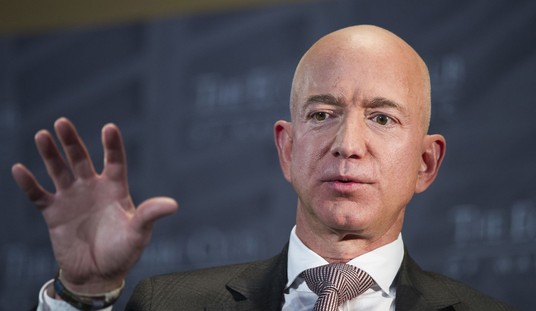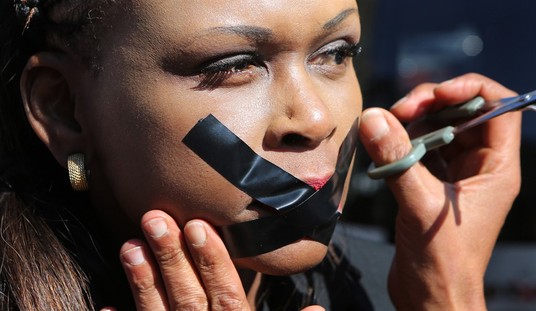It’s gotten some play in America but perhaps not enough. Both Russia and Hong Kong are currently imposing a major crackdown on protesters. And in both cases, the regimes in power are trying desperately to avoid cracks from developing in those foundations.
The Hong Kong clashes have been going on for months but picked up steam over the last few weeks as demonstrators directed their ire against the communist Chinese government. Hong Kong is supposed to have a bit of latitude when it comes to its government. Yes, it’s a part of China but the Sino-British Joint Declaration of 1984 was supposed to keep Hong Kong from having to adopt any sort of communist political structure. Good in theory, but not necessarily in practice.
A brief aside regarding UK’s former governance over Hong Kong. You can blame the British Government in the late 1800s for agreeing to a 99-year “rent-free” lease of Hong Kong to the Chinese government. When Communist China decided to enforce the expiration of said lease, the British didn’t have the political or military will to demand an extension, but the deal was still supposed to allow for a “two systems, one country” lease on freedom.
What sparked the current anger is a bill backed by Hong Kong Chief Executive Carrie Lam which would have allowed extradition to China for criminal suspects. The government promised the extradition would be on a case-by-case basis – but protesters rebelled. The fear is it would allow China’s version of communism to seep its way into Hong Kong’s way of life. Via Reuters:
Under a “one country, two systems” formula instituted as part of China’s sovereignty, the city was promised wide-ranging freedoms denied citizens in mainland China.
“We call this Hong Kong’s age of revolution,” said a masked protester who called himself K Lee. “This movement has been sparked by China’s refusal to respect Hong Kong’s freedoms, and the failure of authorities to listen to the people’s voice.”
After multiple weekends of unrest, the protests have continued to draw large and apparently growing ranks of protesters in increasingly violent stand-offs…
“I have no words for Xi Jinping, he is very arrogant in his belief in communism,” said a university student who called herself Miss Ho, referring to the Chinese president. “He is taking away our freedom, and that is something we cannot bear.”
The bill ended up being pulled, for the record, but it hasn’t calmed things down.
One thing The Economist reported is how protesters originally avoided criticizing the Chinese government – because of concern about how the Chinese would act. This has obviously changed.
Some of the anti-government protesters had argued, however, that demonstrating outside central-government offices in Hong Kong would be pointless and possibly counter-productive. They fear it would anger the party and stiffen its resolve to tighten control in the territory. Better, they said, to keep up pressure on the local government to scrap the extradition law entirely and launch an independent investigation into police violence against protesters. Tactics, however, appeared to shift at the protest on July 21st—a sign, perhaps, of demonstrators’ frustration with what they see as the Hong Kong government’s failure to offer satisfactory responses to their demands.
Some want the chief executive, Carrie Lam, to step down. She has indicated that she plans to stay on. And the party does not appear willing to sacrifice her—at least not yet. The central government office’s statement expressed “resolute support” for the Hong Kong government and its police force in their efforts to protect social stability.
The Hong Kong protesters should keep up the pressure on the local and national government – despite the dangers on the latter. It is possible some sort of resolution can be reached without China deciding to barrel into the territory. South China Morning Post reported the Hong Kong and Macau Affairs Office will make some sort of announcement on Monday. What said announcement ends up being is anyone’s guess.
As for Russia, it’s possibly another example of President Vladimir Putin exerting his muscle against those who do not agree with this governance. This includes a mysterious illness to the opposition leader. Via Associated Press:
Nearly 1,400 people were detained in a violent police crackdown on an opposition protest in Moscow, a Russian monitoring group said Sunday, adding that was the largest number of detentions at a rally in the Russian capital this decade.
OVD-Info, which has monitored police arrests since 2011, said the number of the detentions from Saturday’s protest reached 1,373 by early Sunday. The overwhelming majority of people were soon released but 150 remained in custody, OVD-Info and a lawyers’ legal aid group said Sunday.
Crackdowns on the anti-government protesters began days before the rally. Opposition leader Alexei Navalny was arrested and sentenced Wednesday to 30 days in jail for calling for Saturday’s protest against election authorities who barred some opposition candidates from running in the Sept. 8 vote for Moscow city council.
Navalny was unexpectedly hospitalized Sunday with a severe allergy attack, his spokeswoman said.
Kira Yarmysh said Navalny, who did not have any allergies beforehand, was taken from the Moscow jail to a hospital in the morning, arriving with severe facial swelling and red rashes. Hours later, she said Navalny was in a “satisfactory condition.”
It should be pointed out that Putin has a bit of an out when it comes to what happened in Moscow this weekend. Putin was taking part in a naval parade in St. Petersburg. The easy excuse is for him to simply say, “I’ll talk with my underlings and make sure they don’t do something like this again.”
Multiple countries have complained about police actions during the Moscow protests which Putin will probably just acknowledge and do nothing else.
The clashes between the government and protestors in Russia and Hong Kong show a troubling government response to dissent – something not typically seen in current times. These protestors are pushing for things that we would consider basic human rights: the ability to make choices without asking the state and without facing harsh retribution and possibly political imprisonment. The fact the students are sticking to their guns in Hong Kong against both government pushback and anonymous masked attackers is encouraging.
What happens next in both places will end up being interesting. The Russian round-up is one of the biggest in recent memory while the Hong Kong demonstrations don’t appear to be losing any steam.









Join the conversation as a VIP Member